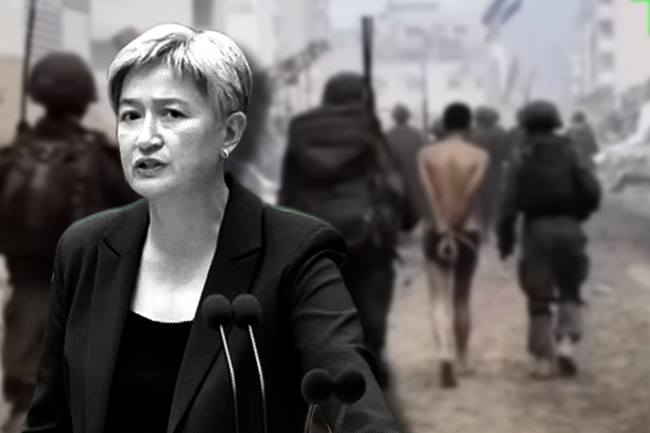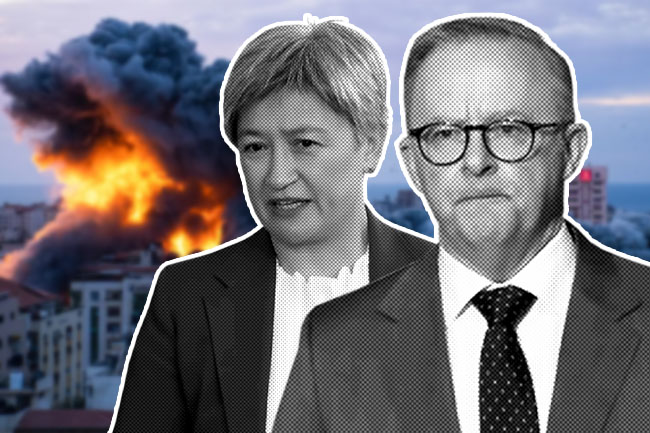The civilian slaughter in Gaza today did not begin solely as a consequence of the monstrous Hamas attack on Israel on October 7, writes Dr Jennifer Wilson.
IN 1970, Israel amended the 1950 Law of Return (a law that grants Jews everywhere the right to citizenship in the State of Israel) to include, among others, non-Jewish spouses.
In 2021, Israel’s High Court of Justice ruled that this right extends to non-Jewish widows and widowers of Jewish spouses.
As the widow of a Jew, I am entitled to Israeli citizenship even though I am not Jewish and have no ties at all to Israel. Indeed, though I have never been to that country and can claim no affiliation other than that of marriage to a Belarusian American Jew who once spent a few months there, I could make Israel my home.
This right, however, is not extended to Palestinians who once lived in Israel or the Occupied Palestinian Territories (Gaza Strip and the West Bank, including East Jerusalem). Israel does not recognise their right to return to homelands where they or their families once lived.
Neither have displaced Palestinians and their descendants ever received compensation for the loss of their land and property following the mass expulsion that enabled the creation of the State of Israel in 1948. This expulsion is known in Arabic as the "Nakba", meaning catastrophe. During this time, some 15,000 Palestinians were massacred by Zionist military forces. Around 750,00 others were hounded out of their homes and dispossessed of their land to make way for the fledgling Jewish state.
The right of a person to return to their homeland is acknowledged as a fundamental human right in step with the right of freedom of movement.
According to the United Nations, this is usually a personal, individual right, however:
'…it is rare that the right of return should be invoked on a national scale, that there should be a situation where the greater part of an entire nation should be uprooted from its land, be exiled and then be denied the right to return. In our times a notable case in this dimension is that of the Palestinian people, forced to flee their ancestral land by reason of military and political action and then to find the right of return denied them on political and legal grounds.'
Amnesty International estimates that there are currently some 5.2 million registered Palestinian refugees, the majority of whom live in camps in Jordan and Lebanon where they are largely excluded from access to employment and essential services, and subject to discriminatory laws. There are also eight refugee camps in Gaza, the largest of which, Jabalia, is home to some 116,000 registered refugees and has in the last 48 hours been subjected to three Israeli airstrikes resulting in the deaths of at least 195 civilians, with scores more missing.
Israel does not recognise Palestinians’ right to return to their homelands and they remain in permanent exile.
According to Amnesty International:
Palestinian refugees in Lebanon, Jordan and the Occupied Palestinian Territories are trapped in a cycle of deprivation and systematic discrimination with no end in sight. For many of them life is full of suffocating restrictions and has become a living hell.
There can be no lasting solution to the Palestinian refugee crisis until Israel respects Palestinian refugees’ right to return.
Palestinians are considered stateless by the European Network on Statelessness, an NGO working to eradicate statelessness in Europe, which stated in an advocacy briefing:
Palestinians who have not acquired a nationality (other than Palestinian) should be considered stateless under the definition set out in the 1954 Convention relating to the Status of Stateless Persons. This is mainly because Palestine remains under occupation by Israel, does not have full sovereignty, does not have full control over issuance of official documentation or entry and exit to its territory, and because attempts to enact a Palestinian nationality law have failed.
To be stateless is no small obstacle in life. It means deprivation of the basic human rights most of us assume as given. It can mean being denied a legal identity at birth, access to education, health care, marriage and employment. It means exclusion and marginalisation. It means not being recognised as a citizen or a national under the laws of any country and so, being bereft of any rights associated with that citizenship.
As of Monday, almost 10,000 Palestinians living in the Gaza Strip have been slaughtered by the Israeli military. This figure is approaching that of the Nakba catastrophe that saw in the blood-drenched birth of the state of Israel. Some 4,000 children (aged between zero and 17 years) are among the Gazans massacred.
The slaughter of civilians we are currently witnessing in Gaza did not begin solely as a consequence of the monstrous Hamas attack on Israel on October 7. It occurred in the context of a long history of subjugation. The State of Israel was forged in the blood-soaked dispossession of Palestinians, who have been denied their right to sovereignty and agency ever since.
Nevertheless, Hamas must be unwaveringly held to account for the suffering and death they inflicted on Israel on that day, and there is nothing that can be used to justify such savagery.
The fact that I have right of return to a homeland that is not mine, yet Palestinians do not, is a symbol of grave injustice, and the disproportionate power Israel wields over Palestinian fate.
Dr Jennifer Wilson is an IA columnist, a psychotherapist and an academic. You can follow Jennifer on Twitter @NoPlaceForSheep.
Related Articles
- Gaza marches inspire seeds of resistance
- Breaking the Last Taboo: Gaza and the threat of world war
- Punishing Palestinians will only revitalize Hamas
- Israel's 'little bit fascist' Gaza destruction
 This work is licensed under a Creative Commons Attribution-NonCommercial-NoDerivs 3.0 Australia License
This work is licensed under a Creative Commons Attribution-NonCommercial-NoDerivs 3.0 Australia License
Support independent journalism Subscribe to IA.














